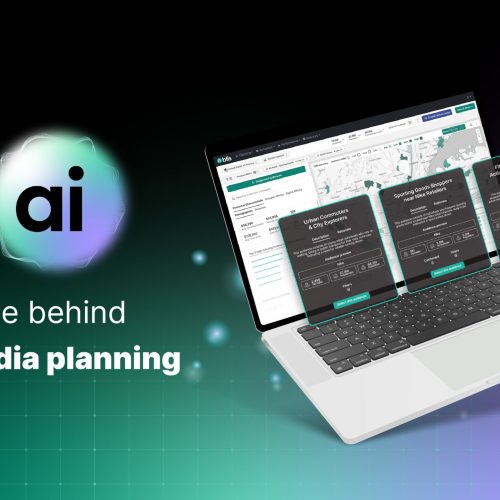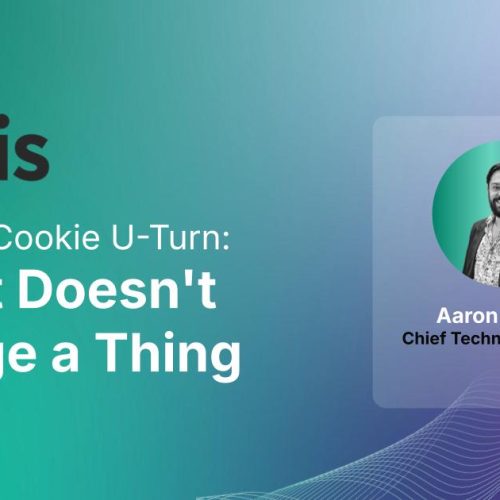Take a deep breath. We made it to the end of a tumultuous year of political turmoil, technological change and legislative upheaval. The fact we made it to New Year’s Eve without starting a nuclear war with North Korea is all the more reason to celebrate. Many of this year’s biggest events, like GDPR, developments in AI and the disjointed launch of the iPhone X, took place at the very epicentre of marketing, with repercussions that are still making headlines to this day. So with the start of a new year, it’s time to look back as well as forwards and ask: what will the last twelve months mean for marketing in 2018?
Brexit remains undecided
Nobody knows how last year’s referendum will affect the UK, and as a result, uncertainty continues to hover over business, with some firms making the move to the continent. No-one can agree on a deal, consumer confidence is shaky, and ad budgets have been ‘paralysed’ by the historic vote.
However, the New Statesman asserts that the UK remains the strongest digital tech player in the EU. Tech Nation values the sector at over £160 billion with investment in 2016 reaching 50 percent more than any other EU country. As a nation, over 1.6 million people are employed in tech with an impressive average salary of £50,000. The tech talent in Britain and the opportunities for digital innovation are still huge.
In these new and uncertain waters, marketers have to be more tenacious than ever and shout to make their voices heard in the Brexit debate if issues dear to the industry are to be addressed, as George Osborne has warned. As well as tenacity, marketers need optimism and confidence: according to the Chartered Institute of Marketing, half of marketing leaders consider Brexit as an opportunity – and it’s this kind of attitude which will ensure it is.
From personal brand to presidency
The world met its first major milestone on January 20th, 2017 when a man who found fame through reality television became leader of the free world. The shock at Donald Trump’s election on the East and West Coast of America demonstrated that it’s all too easy for political ‘experts’ to fall out of touch with the concerns of the electorate.
With the benefit of hindsight, journalists now marvel at how effectively the Trump campaign used anger and drama to whip up a fervour on traditional and social media that eventually led to a win. Trump’s team masterfully pitted him against the establishment at a time when the establishment was failing many. Whatever you think about ‘@realDonaldTrump’, he remained consistent, recognisable and authentic throughout the race, with a powerful four-word tagline to boot.
The bottom line: there are reasons to be concerned, but as many lessons to take away. Marketers can fail to listen properly to their customers and prospects which leads to disastrous consequences, just as the Democrats found when the election results were announced in 2016. As for Trump’s campaign, it was a masterclass in the art of personal branding, demonstrating that occasionally the old adage ‘no press is bad press’ rings true and that sometimes strong emotions are more effective than reason.
AI enters the mainstream
Will it empower the robot revolution? Or create a better world through more intelligent technology? Whatever stance you take, artificial intelligence is going to rock the boat. For marketers, it will simplify the workflow and enable quicker and more intelligent data science, ultimately leading to better campaign results.
The predictive elements of deep learning, in particular, will allow marketers to anticipate consumer behaviours by interpreting and acting upon streams of data quickly. In the sphere of geomarketing, it’s possible to predict where people will go based on past trends and historical data. It is this that led to the creation of innovative metrics such as cost per visit (CPV), which only charges marketers once a consumer actually walks in-store. AI will enable marketers to scale storytelling, personalisation and data management in a way that hasn’t been seen before.
The takeaway: marketers should educate themselves thoroughly, learn to use simple and user-friendly software, and begin reassessing how roles within their team might change now that machines can deal with the grunt work, leaving more time for human creativity.
iPhone X retails for up to £1,149
Facial recognition technology that works in the dark and can tell if you’re looking at it or not? Emojis that mimic your facial expression by tracking more than 50 facial muscle movements? Everyone is debating whether these features make the iPhone X’s price tag worth it, but for marketers, there’s no question.
In particular, the new operating system, iOS11, has augmented reality features that will enable brands to create more sophisticated and engaging brand experiences that are gamified, immersive and relevant to the consumer’s surroundings. The technology that gave life to phenomena like Snapchat filters and Pokémon Go is getting even better. Now, marketers can begin to question which of the iPhone X features they will incorporate into their campaigns, whether that’s the QR code scanner built into the camera or the chance to create augmented reality at scale.
Everyone gears up for GDPR
Or rather, they don’t. Smart Insights surveyed 200 companies and found an overwhelming 94 percent of businesses don’t feel ready to comply with the new privacy regulations which will be implemented on May 25th, 2018. 49 percent said they were aware of GDPR but hadn’t begun preparations, while 16 percent claimed not to even know what it was.
It’s great that the EU is taking steps to protect consumer privacy and the right to be forgotten, and that many companies are now hiring a Chief Data Officer. But the clock is ticking to understand and act on the new laws surrounding retrieving, storing and using consumer data, and non-compliance won’t just incur fines; it will put reputations at risk. Data providers, in particular, must get their houses in order ahead of the fast-approaching deadline, while across the board everyone must remember the right to be forgotten and that a pre-ticked box no longer signifies consent.
Changes in politics, legislation and technology have continued at breakneck speed this year, leaving many in the dark about both their short and longer-term implications. And in a fast-moving sector, it’s tough to predict the future, particularly with Brexit. One key difference between that and GDPR, however, is that the latter is set in stone while Brexit is still to play for, meaning marketers must fight their corner before May 2018.
Luckily, to counteract the anxiety and uncertainty surrounding Trump and Brexit, marketers can enjoy playing with new toys like artificial intelligence and the iPhone X, which are both going to have huge, if very different, impacts. The latter will empower consumers worldwide to enjoy more creative, effortless and innovative brand experiences, while the former will empower marketers to streamline and automate more intelligent decisions and learnings about their customers.
View the original article on Digital Doughnut here.


